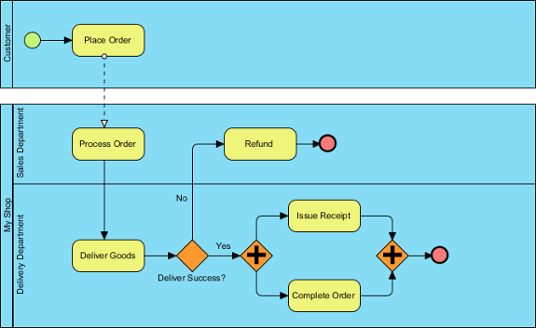Introduction
Entrepreneurship is not just a career path; it’s a mindset, a journey, and a way of life. For aspiring entrepreneurs, selecting the right university entrepreneurship degree program is a pivotal step toward realizing their dreams. The right program can provide the knowledge, skills, and networks needed to fast-track your entrepreneurial ambitions. In this article, we’ll explore how to choose the perfect university entrepreneurship degree to kickstart your entrepreneurial journey.
Selecting the University Degree Course
Selecting a university course is a crucial decision that can significantly impact your academic and career journey. Several factors are typically important when choosing a university course:
- Academic Interest and Passion: Choose a course that aligns with your interests, passions, and long-term career goals. You’ll be more motivated and engaged in your studies if you are genuinely interested in the subject matter.
- Career Goals: Consider how the course will prepare you for your desired career path. Research the job prospects and opportunities associated with the degree you’re interested in.
- Course Content and Curriculum: Examine the course syllabus and curriculum to ensure it covers the topics and areas you want to study. Consider the balance between core subjects and elective options.
- University Reputation: The reputation of the university matters. Research the university’s ranking, reputation in your field of interest, and alumni success stories.
- Accreditation: Verify that the university and the course are accredited by relevant educational authorities. Accreditation ensures that the institution meets certain educational standards.
- Location: Consider the location of the university. Think about whether you prefer studying in a particular city or country, taking into account factors like climate, culture, and proximity to home.
- Financial Considerations: Evaluate the cost of tuition, living expenses, and the availability of scholarships or financial aid. Create a budget to ensure you can afford the chosen course.
- Class Size and Student-to-Faculty Ratio: Smaller class sizes often provide more personalized attention and opportunities for interaction with professors. Research the student-to-faculty ratio.
- Extracurricular Activities: Explore the extracurricular opportunities available at the university, such as clubs, sports, research opportunities, and internships. These can enrich your overall university experience.
- Internship and Work Placement Opportunities: Some courses offer internships or work placement programs as part of the curriculum. These experiences can be valuable for gaining practical skills and building your resume.
- Research Opportunities: If you have an interest in research, look for universities that emphasize undergraduate research or have research centers related to your field.
- Language of Instruction: Consider the language of instruction. Ensure you are comfortable with the language used in lectures and coursework.
- Support Services: Investigate the availability of academic support services, career counseling, mental health resources, and student organizations that can enhance your university experience.
- Diversity and Inclusivity: Assess the university’s commitment to diversity and inclusivity. A diverse campus can offer a broader perspective and enrich your learning experience.
- Flexibility: Determine the flexibility of the course. Some programs allow for customization of your curriculum, enabling you to tailor your education to your specific interests and goals.
- Graduate Outcomes: Research the employment rates, salaries, and success stories of graduates from the course to gauge its effectiveness in preparing students for the workforce.
- Personal Circumstances: Consider personal factors like family responsibilities, health, and lifestyle when choosing a course. Ensure it aligns with your current circumstances.
Ultimately, the most important factors will vary from person to person, depending on individual goals and priorities. Take your time to research and make an informed decision that aligns with your aspirations and values.
Selecting the Entrepreneurship University Degree Course
In this section, we’ll explore how to choose the perfect university entrepreneurship degree to kickstart your entrepreneurial journey. In the previous stage we have talked about ‘in general’ whereas this adds the entrepreneurship aspects when deciding which course and university to persue.
- Identify Your Passion and Niche: What industry or sector excites you the most? Entrepreneurship degrees come in various specializations, from tech startups to social entrepreneurship. Understanding your passion and niche will help you narrow down your choices.
- Research Programme Options: Start by researching universities that offer entrepreneurship programs. Don’t look at their general university rankings (as this tends to relate to their standard courses and research reputation), but look at the specific entrepreneurship courses’ reputation.
- Curriculum and Course Offerings: Dive deep into the curriculum. Examine the modules offered within the programme. Are they aligned with your entrepreneurial interests and goals? Look for a balanced mix of foundational entrepreneurship modules and specialized topics that resonate with your niche. Make sure they support your entrepreneurial journey.
- Faculty Expertise: Faculty expertise matters. Research the background and experience of the professors who will be teaching entrepreneurship courses. Professors with real-world entrepreneurial experience, even business failure can offer valuable insights and mentorship.
- Practical Experience and Internships: The best entrepreneurship programmes provide hands-on experiences. Look for programmes that offer internships, co-op opportunities, or access to real startup projects. Practical experience is invaluable for aspiring entrepreneurs.
- Networking Opportunities: Entrepreneurship is about connections. Seek programmes that offer robust networking opportunities, such as industry events, guest speakers, and access to successful alumni. A strong network can open doors to partnerships and funding.
- Incubators and Resources: Check if the university has on-campus incubators, innovation centres, or entrepreneurship resources. These can provide crucial support for launching your venture. Explore the resources available to students, from co-working spaces to funding opportunities.
- Mentorship and Support: Mentorship is a game-changer in entrepreneurship. Find out if the program offers mentorship programs or access to experienced entrepreneurs who can guide you in your journey.
- Global PerspectiveEntrepreneurship knows no borders. Consider programs with a global perspective, as they can prepare you for international markets and collaborations.
- Alumni Success StoriesResearch the success stories of alumni who have graduated from the program. Their achievements can be a testament to the program’s effectiveness.
Entrepreneurship Degree Selection Scorecard
Now, for each entrepreneurship programme you’re considering, assess how well it meets each of these ten factors and assign a score out of 10 points to each of the item above. Add up the scores for each programme to determine which one aligns best with your priorities and goals. This will provide a quantitative measure to help you make a well-informed decision.






